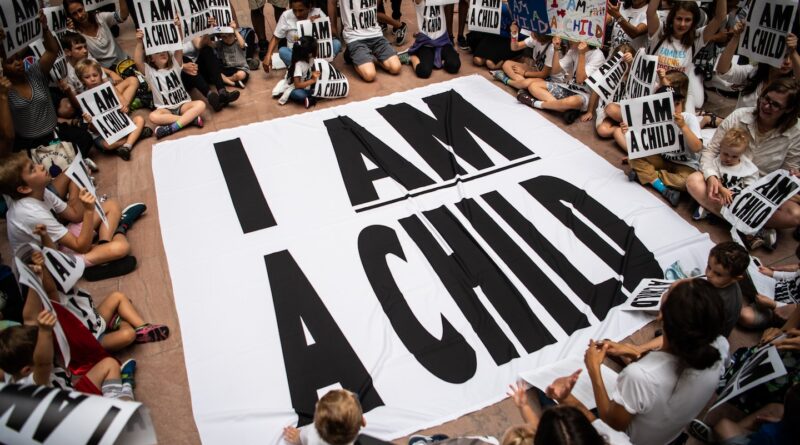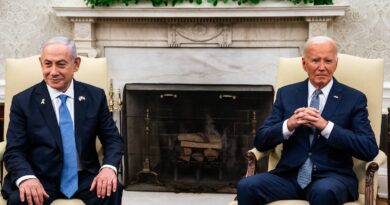Federal judge approves settlement barring migrant family separations
“It does represent, in my view, one of the most shameful chapters in the history of our country,” U.S. District Judge Dana M. Sabraw said before he approved the settlement in a hearing that recalled the shock and disbelief surrounding the policy in 2018.
Under the settlement approved Friday, crossing the border illegally will no longer be a reason to separate a family, at least for the next eight years, which is how long that provision will last, lawyers said. The Justice Department has said the government will not prosecute parents for crossing the border without permission, a misdemeanor, or for the felony crime of reentering after being deported.
The settlement also offers aid to once-separated families so that they may apply to stay in the United States permanently. Those who were deported may apply to come back. Their immigration records will be cleared, giving them a fresh start on applying for humanitarian protection such as asylum.
Once they are in the United States, formerly separated families may apply for three-year work permits, six months of housing assistance and one year of medical care, according to the settlement. The families also are eligible for three years of counseling under the settlement.
Sabraw, a Republican nominee, declared the separations unlawful and ordered the families reunited in June 2018, after President Donald Trump halted the policy amid widespread condemnation.
Trump’s zero-tolerance policy ran from May to June 2018. Later, investigations determined that officials separated migrant families throughout Trump’s four-year term, which ended in January 2021.
Biden administration officials said the Trump administration separated more than 4,000 children from their parents, though past estimates have put that figure as high as 5,500. Lawyers for the ACLU, which represented the migrant families in court, estimated that as many as 1,000 children may still be separated from their parents. Advocates are trying to track them down.
The ACLU has called the case the most significant settlement in the organization’s 103-year history.
“This settlement brings much needed help to these brutalized children but there remains significant work to ensure that every family is now reunited and to monitor that no future administration tries to circumvent the agreement and reenact the same horrific policy,” Lee Gelernt, an ACLU lawyer and the lead counsel in the case, said in a statement.
During the hearing Friday, the judge retraced his own steps through the history of the case. He said he had been skeptical that the U.S. government was secretly separating children from their parents without a legal finding that the parents were unfit.
“When you first brought the case, the allegations were sensational,” Sabraw told the ACLU lawyers. “It was far from clear to me that this could actually be happening.”
Sabraw said he soon realized that some children could be permanently orphaned as a result of the government’s actions. Hundreds of parents were deported without their children, which Sabraw said was “cruel.” Most families were from Guatemala, El Salvador and Honduras, he said.
The judge praised the settlement for ensuring that the separations will not happen at least for the next eight years and for making efforts to “rectify a wrong.” He said he expected lawyers to continue searching for all children who remain apart from their parents.
“This settlement does everything it can to keep that focus,” he said. “It shouldn’t stop until every child is found.”
Homeland Security Secretary Alejandro Mayorkas, whose agency leads the Family Reunification Task Force, which began in February 2021 and has reunited hundreds of families, has said the settlement’s goal is “to ensure that the prior practice of separating families does not happen again.”
However, border officials may separate families in limited circumstances, according to the settlement, such as if an adult poses a danger to a child or to national security, is the target of a criminal warrant, or suffers a medical emergency.
The settlement establishes procedures for handling separations to ensure that the government will track children and notify migrants’ lawyers in case they wish to challenge the government’s action.
Trump, who is campaigning for the 2024 Republican nomination for president, has continued to praise his administration’s zero-tolerance policy.
In a November interview with Univision, the Spanish-language television network, Trump said family separation deterred migrants from attempting to come to the United States. He has not ruled out attempting to restore that policy, if elected.
“When you hear that you’re going to be separated from your family, you don’t come,” Trump said in that interview. “It stopped people from coming by the hundreds of thousands because when they hear family separation, they say, well, we better not go.”
His campaign office did not respond to requests for comment about the court settlement.
Sabraw said no one had objected to the proposed settlement by Friday.
The class-action lawsuit stemmed from an initial complaint filed in February 2018 on behalf of a plaintiff known to the public only as “Ms. L,” to protect her privacy. The woman said she arrived at a legal port of entry in late 2017 to seek asylum, after fleeing the Democratic Republic of Congo with her then-7-year-old daughter.
The woman said U.S. immigration officials forced them apart, sending her to detention and her child to a shelter in Chicago, where the pair later reunited, according to the ACLU.
The Ms. L case is different from dozens of still-pending lawsuits and hundreds of administrative claims brought by individual families seeking monetary damages from the U.S. government for the pain and suffering of the separations. A few cases have been settled.
The Justice Department had been in negotiations with the families’ lawyers to pay parents and children $450,000 each to settle those cases, but talks fell apart in 2021 after the cost was leaked to the media.
Critics said migrant families who crossed the border illegally should not receive payments, and President Biden, who opposed the Trump-era separations, thought the payments were too high.
The Justice Department has agreed to settle some of those cases in recent months, including a federal lawsuit in Florida that paid $315,000 in total to a father and son from Honduras who were separated for two months.




